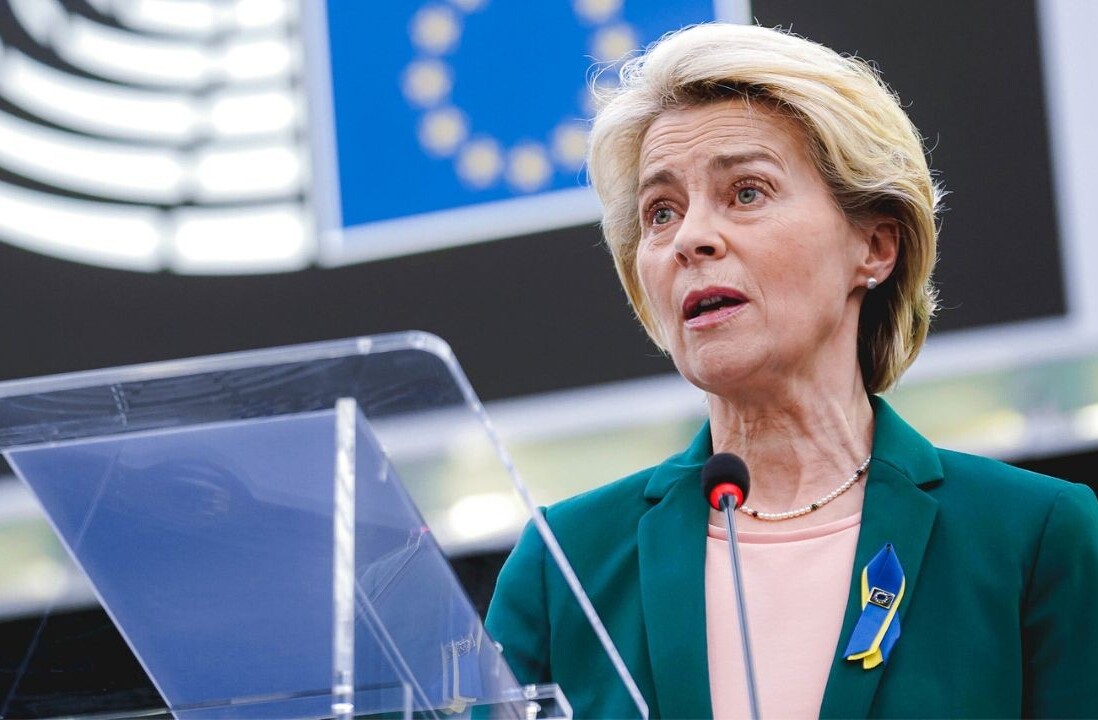
After a global dip during the start of the pandemic, Europe’s startup scene is buzzing yet again. 2021 saw a record-breaking €100bn being injected into European startups, and 100 new unicorns being born across sectors.
And with Brexit coming into effect, 2021 also saw a shake-up of European titans, with London possibly losing hold of its startup-ecosystem crown.
One region that might snatch said crown is Benelux — the Western European region comprising Belgium, the Netherlands, and Luxembourg. Cities like Amsterdam and Brussels have not historically received the same level of investor interest or press as London, Paris, and Berlin, but they’re quickly carving out their place across fintech, climate tech, mobility, and more.
In fact, the X-Europe program-led by TNW and 4 other partners) is now looking to boost the region’s tech capabilities by connecting 150 startups with investment, partnerships, talent, and opportunities across Europe.
This means more opportunities for would-be entrepreneurs, investors, and tech talent. If you’re new to the region, here’s what the small but mighty Benelux has to offer Europe’s startup scene.
The Netherlands: The next tech giant of Europe?
Of the three Benelux countries, the Netherlands is the largest, being home to 17.2 million people. Its major economic hubs are Amsterdam (the culture and tourism capital), Rotterdam (the economic capital), and The Hague (the administrative and royal capital of the Netherlands). When it comes to economic power, the Netherlands leads with a GDP of $913.9bn in 2020.
As the birthplace of Wi-Fi, Bluetooth, cassettes, DVDs, CDs, and Blu-Ray, the Netherlands has long been considered a tech innovation hotspot. It’s since used its excellence in research (along with the support of large multinationals) to create a bustling startup hotspot.
While VCs were already buzzing about the potential of the Dutch startup ecosystem — since Brexit, tech companies large and small have ditched London for the silicon canals of Amsterdam. This has surged the number of startups and talent to new levels, bringing with it a sudden tech boom.
When we look at the top deals from 2019-2020 in the Benelux region, the top two by far were Dutch companies, Messagebird (a cloud communications startup-turned-unicorn) and Picnic (one of the biggest European players in the online grocery delivery space), which each bagged $200m funding rounds. They’ve since left these rounds in the dust, having subsequently scored €600m+ mega-rounds since April 2021.
Amsterdam alone has produced more than 12 unicorns since 2012, making it the 4th leading unicorn producer in Europe, and the city’s ecosystem hit €100bn in value (€187B if you include Booking.com). It’s no wonder then that the city is ranked as the #3 tech ecosystem in Europe by Dealroom. (It’s also home to TNW — enough said.)
The Netherlands is also known for having a strong investor scene. Matt Welle, founder of Mews, says:
The country is a haven for cloud and payments companies, so investors know the landscape well and aren’t so laser-focused on revenue in early-stage companies. As the market is quite developed, Dutch VCs are more confident in valuing potential in complex technology.
But the Netherlands isn’t without its problems. Strong funding across sectors means the capital city has yet to bag the title: “capital of ____” as London has for fintech and Paris has for AI. Dutch deeptech is one notable sector lagging behind the rest of Europe in terms of funding, despite having the highest density of AI startups in the EU.
However, when it comes to entrepreneurship, the Netherlands scores high in regards to starting a business; it’s possible to start a business here in just a little over 3 working days, putting them ahead of, not only the other Benelux countries, but also all of the V4 countries and two out of three Baltic countries (only Estonia ranks higher).
Belgium: On the up
The Netherland’s slightly smaller cousin, Belgium, is home to 11.58 million people, who are largely concentrated in the cities of Brussels, Antwerp, and Ghent. Belgium follows the Netherlands with a GDP of $521.9bn.
While the pandemic saw many sectors shrink and companies shutter, it offered a unique opportunity for some to break the mold; Belgium, an ecosystem that has historically remained out of the spotlight, has only continued to grow since the pandemic, and more Belgian startups are getting funding.
According to Dealroom, VC investment in the region grew from €1bn in 2020 to €2.3bn in 2021 — and the first quarter of 2022 has already seen €515m. While this funding is mainly going into healthtech, fintech and energy remain in the country’s top-funded sectors.
Belgium has also produced 7 unicorns — with 12 soonicorns hot on their heels — including Ghent-based Deliverect, which enables restaurants to get into online food delivery. The company raised $150m at a $1.4bn+ valuation in January 2022.
While its startup scene may be smaller than their clog clad neighbor’s, as the capital of the EU, Brussels based startups enjoy closer proximity to decision-makers and lobbying groups, making it an interesting destination for startups that want to help shape the future of their industry.
And when it comes to R&D, Belgium reigns supreme; it’s considerably increased its GDP spending on research and development from 2% to 2.82% in 2018, much higher than the Netherlands (2.16%) and Luxembourg (1.24%), awarding it the fifth highest R&D expenditure in the EU behind Sweden, Austria, Germany, and Denmark.
Luxembourg: Small but lots of support
Luxembourg is by far the smallest Benelux country — it even made the top 10 smallest in Europe — with a population of 642k, many of which live in the capital of the same name. It trails behind its neighbors in terms of GDP with a much smaller $73.4bn — but this seems much greater when you compare its GDP against the size of its population, making Luxembourg the wealthiest EU country per capita.
While this tiny, wealthy country might not be the first that comes to mind when considering startup capitals, the standard of living is very high — the highest in the world, in fact — making it attractive not only for founders but also tech talent.
Despite its size, Luxembourg packs a lot of power and influence within the EU being the seat of the European Court of Justice, the European Investment Bank, and several other administrative offices of the union.
And while the region trails the Netherlands and Belgium for number of startups (513), unicorns (2), VC funding ($746m), accelerators, and angel investors, they thrive in the government-backed initiatives department. Ryan Young, Head of Market at Talkwalker says:
Luxembourg has so many resources for startups! The government runs its own program, sponsoring incubators and providing funding. The country is full of other non and for-profit startup assistance including kickstart services, classes, and coworking offices.
Meanwhile, its tight-knit startup community is proving to be an asset for international entrepreneurs who want to build connections and scale fast, without the overwhelming competition found in larger tech cities.
While it still has a long way to go, a supportive government and wealth promise big things for this tiny titan.
Although the three countries that make up Benelux may have very different startup ecosystems, what they have in common is their fast growth and potential. For investors, this could mean capturing the next unicorn, before the competition. For founders, new opportunities and the potential to shape the future of their industry across Europe could bring major benefits in the years to come.
The X-Europe program is fostering the growth of startups in the Benelux region. Follow the program website to keep an eye on the services they are providing and the solutions being advanced by the selected startups, and join the upcoming activities.
Get the TNW newsletter
Get the most important tech news in your inbox each week.
This project has received funding from the European Union’s Horizon 2020 research and innovation program under grant agreement No 871795.





